50 Free Directory Submission Sites with High PR
Published by James Parsons • Social Media • Posted August 5, 2015 ContentPowered.com
ContentPowered.com
Before we begin, I’ll admit that this is a little bit of a clickbait title. There are two reasons for this; one is because directory submission is one of those advanced techniques you should only use if you know what you’re doing, and even then, use it in moderation. The other reason is because PR, or PageRank, is hardly a viable metric to measure sites by these days.
Is PageRank Dead?
For those following along at home, PageRank began life as one of the central pillars of Google’s search ranking algorithm. It was a ranking that indicated the quality of your site, and along with a host of other factors, determined your search ranking.
Of course, webmasters immediately latched onto this as some sort of simplified version of how Google saw your site quality. As long as Google kept it up to date, it was a reasonably good indicator, at that.
The problem, here, is that Google hasn’t kept it up to date. Over the last few years, it has grown increasingly rare that PageRank was publicly calculated and updated. John Mueller even said that they probably would not be updating it moving forward.
This throws a bit of a wrench into the plans of anyone using PageRank as an indication of quality. The Google Toolbar still shows PageRank for sites, but it’s a snapshot frozen in time. Those calculations were made in some cases years ago, and have not been updated since. A site with a high PR publicly might not actually have a high PR anymore, and there’s no way to tell.
So, for the list of directory sites I’m going to give you, use caution and do a little research. They may have started out with high PRs, but they may have since lost that edge, particularly due to people misusing them. Make sure they have high quality content and that they still show up highly in search results. If they don’t, they aren’t going to give you much benefit when you submit.
The Perils of Directory Submission
Article directories are a very peculiar type of site online. The concept is good; a single site where authors go to publish content, so that readers can find all sorts of aggregated content in one place. It was a sort of simple syndication as well; you could submit the same article to a dozen or a hundred different directories, and it would appear on all of them without penalty.
The problem here came from webmasters realizing the value of links coming from outside sites. Directories tended to have a lot of traffic and a lot of referrals, and so they were great places to get links to your site. All you had to do was write a single article with a link back to your site, and publish it on any of a hundred or more directories. Boom; suddenly you had hundreds of high quality incoming backlinks.
This is a problem for Google; they don’t want you to be able to game the algorithm so easily. By generating those links, you were generating value, without the input of a third party. It’s like voting for yourself a hundred times in a community election. Either Google would need to devalue links in their algorithm, or they would need to do something about directories.
They chose, of course, the latter option. Directories, the vast majority of them, suddenly became deadzones. Both Panda and Penguin hit directories, for a double-whammy. Panda doesn’t like duplicate content, so any article you publish on multiple directories is penalized by default. Penguin doesn’t like overly optimized links and backlinks, so finding the same link in the same anchor text in the same context throughout a hundred sites is an instant penalty. Both hurt the directories, and both hurt you.
So how do you use directories in the modern era? How can you use them safely, without penalizing yourself or the directories?
The first step is to find high quality directories. That’s what this list is for; directories you can investigate to see if they fit your criteria.
What makes a high quality directory? Well, the days of a one-site-works-for-all directory are long over. These days, you need to find more specialized, industry-specific directories. I can virtually guarantee your industry has some, even if they don’t show up on this list. You’ll have to do some research yourself.
A high quality directory will also be exclusive about they content they accept. It won’t be on quite the same level as getting published on a site like Forbes or VentureBeat, but it will be fairly strict with some rules, like no duplicate or syndicated content.
You can also look at past PR and see if the site had something going for it in the past. These sites tend to adjust with the times, and while they may have suffered for a while immediately after Panda and Penguin, they adapt and change.
The second step is to create unique content for the directory. You won’t be able to paste in a post you wrote and published on your own site or on another directory. The duplicate content penalty will just get your post removed.
The third step is to avoid putting too many links to your page in the content you submit. One link may be fine, but a lot of what you’re getting out of a directory these days is brand awareness. It’s more about name recognition than links. If you’re looking for links, directory submission is a dangerous game that can earn you significant penalties.
The moral of the story, basically, is to avoid doing anything that looks too much like the old black hat method of using article directories, or too much like current spam methods. Use directories in moderation, use them only when they’re relevant, and use them as a supplement to your own marketing, not as a replacement.
The List
Well, now that all of that’s out of the way, I guess I can give you a list now. This is my list; there are many like it, but this one is mine. It is by no means comprehensive, nor will it be suitable for you or anyone to go through and submit to every single entry. Instead, use it as a guide to find other directories with similar levels of quality.
You’ll note quite a bit of crossover here between directories and social bookmarking sites. You could consider social bookmarking to be a child of the directory. In the old days, directories were a way to get content and links all over the web. Now, if you want content all over the web, you post it on what remains of directories, or syndicate it. If you want links, you go to social bookmarking sites, where the content stays on your site but the link comes from another domain.
- Delicious – One of the progenitors of social bookmarking, Delicious is technically an article directory with links submitted from around the web. You don’t post articles, though, just links to your page.
- eHow – One of the prototypical directories still in operation, they are absolutely notorious for being hit by Panda just about every time it updates, due to their masses of old low quality content. Still, you can post high quality content and rake in the fame.
- HubPages – One of the biggest old-style directories to survive and thrive in the modern day. You can find hubs for just about any possible subject, so it’s good for anyone.
- SeekingAlpha – This directory is focused almost entirely on the stock market, trading, and financial services. If you’re in the financial sector, and I don’t mean the “make money from home” blogging niche, you can find great success here.
- Examiner – A large news and op-ed site, Examiner has a massive readership and a huge presence online. It would take a lot of low quality content to bring it down, so you’re pretty safe publishing on the site.
- EZineArticles – This is basically the closest thing you can find today to the old style directory. It has categories for everything, it advertisers your ability to publish original content and get a lot of exposure, and they have a decent reputation.
- ArticlesBase – This site has an interesting selection of niches, from software and marketing to vacationing and beauty. It also has a sizable middle eastern contingent, for both readership and contributors.
- Buzzle – This site has a slick design somewhat reminiscent of magazine, with a range of categories from animals to travel to history. Oddly, it has a lot of educational-style articles, and a lot of it is geared towards a more grade-school audience.
- GoArticles – This is a pretty basic article directory with everything you want and nothing you don’t. Be aware that anyone can come and republish posts submitted to this site, so monitor any content you put there and make sure it’s not being abused.
- Technorati – If you’re writing about tech news, there is almost no finer place to be. It’s a very narrow niche and you need to be either insightful or connected to the pulse of the industry in order to be successful on the site.
- Articles.org – This site is notable primarily because of its lack of organization and its catering to international contributors. They have sections for sixteen different languages, including Japanese, French and Turkish. It appears to be an automatic translation, though, so I have no idea how valid it is.
- Article City – Not to be confused with Spatula City, Article City is a directory of articles created specifically for reprint and syndication. Like GoArticles, you’ll want to leave links off the content, or else monitor them to make sure you approve of any place the articles are published.
- Gather – This is something of a dead site, which means there’s no competition for your visibility. On the other hand, I don’t know if there are editors still working to approve content, if it’s even required. Give it a shot, but don’t be sad if it doesn’t work out.
- TheFreeLibrary – This site has a lot of business posts, a lot of science posts, and a few posts in a lot of other industries and niches. It has been accumulating posts since 2003, and shows no signs of going away any time soon.
- StumbleUpon – Not technically a directory, nor a social bookmarking site, Stumble is pretty unique among methods of sharing your posts. Some niches do much better than others, of course.
- SitePromotionDirectory – This one is a shamelessly SEO directory, and as such, I wouldn’t recommend using it for your high-end blogs and business sites. If all you’re trying to do is play around with SEO techniques or experiment with case studies, though, this one is a good place to experiment.
- Dizila – This site is a relatively small directory with a bit of a counter-cultural slant. It also has both a free and a paid listing option, with a featured listing costing a ridiculous $40 a year. I don’t think there’s enough competition to bother with premium listings, but they exist if you want to throw money at the site.
- HotVsNot – Not to be confused with the picture-rating app Hot or Not, HotVsNot is a directory site with a significantly smaller usership and a very different type of mission statement. It also has a lot of world travel, regional, news and reference-style posts.
- ABCDirectory – This directory, interestingly, has a separate section for press releases. I’m not sure who goes to a directory site for press releases, but if you have one to publish around the web, it couldn’t hurt to put it here.
- 01 Web Directory – Okay, this one is a bit of a trick. Honestly I’m just including it here to sow you what a weird, old-style directory looks like and what you probably want to avoid in the modern age of directory submissions.
- RapidNetwork.eu – I include this one because it’s a EU-focused directory with a wide range of content. It also has PR statistics for the content it publishes, though it’s amusing because the only number that will grow is the number of not listed PRs.
- Blogs-Collection – This directory is another bookmark-style page that lists sites, their descriptions, and their categories. It’s not really a palce to post direct articles, and is more a place to share your URL.
- GMAWebDirectory – This directory started life as a Montreal-only directory, which means a lot of the links on it are bilingual and Canadian-focused. On the other hand, it has over 140,000 pending links, so it might be some time before your link reaches the public eye.
- 1WebsDirectory – This directory has a wide range of regional sections, so if you’re specializing in writing about certain countries or regions, particularly with travel and vacation topics, you can find some success here.
- ILoveLanguages – This directory is very niche; it’s focused entirely on language and translation posts. It also has a sub-theme for schools, reviews, and jobs. Give it a shot if you’re a linguistic blog.
- Envirolink.org – This directory is highly focused on environmental topics, like climate change, agriculture, green energy, ethics, legislation and pollution. This is a very robust niche if you’re part of it, so give this directory a try.
- DigitalDivideNetwork – This network is a more traditional article directory, though you do need to create an account in order to post. It’s free, though, so you’re always able to register and post at the drop of a hat. On the down side, their most viewed article is virtually unreadable spam, so be careful here.
- iSnare – This article directory tried for a while to replicate Wikipedia, so it has a large and relatively defunct encyclopedia they still feature on the front page. They also have a publisher service, where they send article packs out to publishers automatically.
- Amazines – This ezine-style article directory has a very politically conservative slant, so if you’re a more liberal blog, you won’t find any traction here. On the other hand, if you can take advantage of conservative attitudes, it’s a great fit.
- EzineMark – Another large, general interest ezine portal with a lot of categories, a lot of posts, and a decent viewership. In contrast to many older article directories, it still works.
- Zimbio – This directory is highly focused on entertainment, pop culture and the movies. It’s part of a network along with StyleBistro and Lonny. If entertainment is your game, then this is a great place to post.
- Pinterest – A digital pinboard, this is again not quite a directory, and is more of a graphical social bookmarking site. It’s also much more geared towards women and “female” interests, like crafting and mom-blogging.
- InfoBarrel – Another general interest directory, this time with a lot of dieting, some travel, and some political posts featured on the front page. If that appeals to you, by all means, give it a shot. They also have a shared revenue system, so you can make some cash along the way.
- ArticlesFactory – This directory has existed since at least 2005, but they’re still going strong, with posts on money, decorating, tax prep and a whole lot more.
- SooperArticles – Never let it be said that a name turned you away from a valid site; Sooper is a decent article directory with surprisingly strict quality requirements for their posts. Topics can be all over the place, but if you’re an expert on something completely random, it’s a good place to post about it.
- PubArticles – It’s rare that a directory gets a decent reputation beyond what the posts it hosts accumulate, but this one has worked its way up there. It typically focuses on gaming, technology and lengthy how-to style posts.
- Article Alley – This directory is unique in that it gives extra attention to authors of high quality content, featuring them on the front page alongside their content.
- AfroArticles – No, this isn’t a site dedicated to articles about one particular hairstyle. It’s just a name, for a directory with free reprints and syndication.
- ArticleDashboard – This is about as simple a directory as can be; a homepage covered in category pages, and content in many of them.
- SearchWarp – This directory is one part directory, one party writer community, and one part personal blog. Use it to share insightful and personal posts rather than marketing messages.
- SelfGrowth – This is a directory entirely focused on personal development, be it from relationship improvement, self-help, exercise or mental training.
- WebSource – This directory is partially a site for web designers and developers to share their insights, away from the typical overrun communities.
- BusinessKnowHow – this is a directory focused on small businesses, from management to growth to DIY solutions.
- PromotionWorld – This directory is interesting in that it has an annual and monthly top-10 awards system. What do you win? That I don’t know, other than the acclaim of winning.
- UPublihs.info – A directory that focuses less on displaying content, and more on getting it into the hands of more dedicated publishers who will give it more attention.
- ArticleSphere – This is a fairly basic but old directory with a moderate PageRank and allowance of nofollowed links.
- BaseArticles – This site is dominated by a small handful of authors, and none of them bother to fill out their profiles. Just by taking that one simple step, you can get ahead of the pack and probably double the traffic they pull in. If it looks like you care, people give you more credit, after all.
- Snipsly – This was a decent directory, and it still is, with one caveat; you have to have an account already. They haven’t really updated anything on the admin side in a long time, and the registration button is broken. You can still publish if you have access, but if you don’t, it’s a dead end.
- Reddit – At this point, you know about Reddit. If you don’t, I’m curious what you’re doing investigating a technique like directory submission instead of something a lot easier, more prominent, and valuable like social media marketing.
- DMoz – Not to be confused with Moz.com, DMoz is a directory with over 4 million sites listed; rather than posting articles, it posts links and short descriptions.
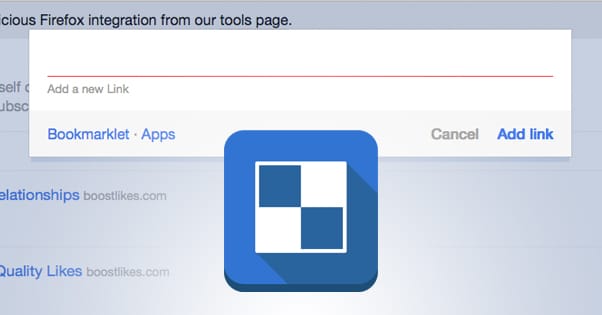
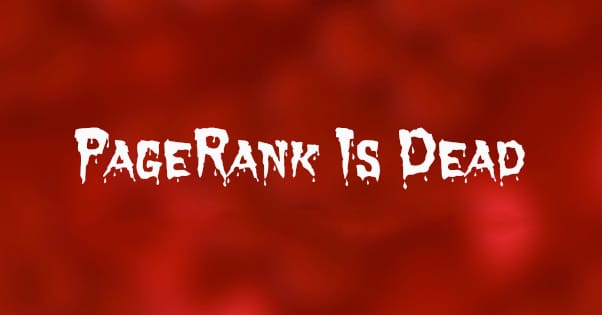
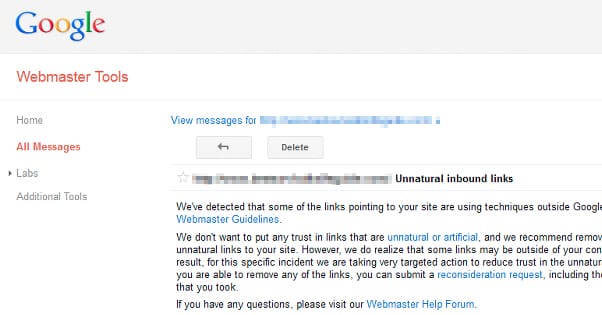
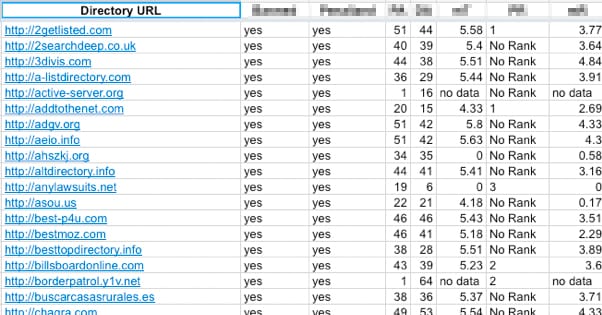




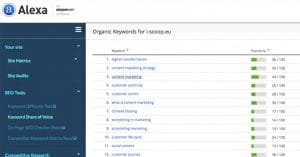
Even though I appreciate a list like yours, of which I’m
sure will be more than helpful to many other SEOs, I still try to avoid article directories in general.
Well, it is the best list of high PR directory sites. There are also some old directories and also many of them are new and fresh. This list can be very handy if you want to get top page ranking. Kindly share some blogs commenting list too. Anyhow thanks for sharing such a helpful list.